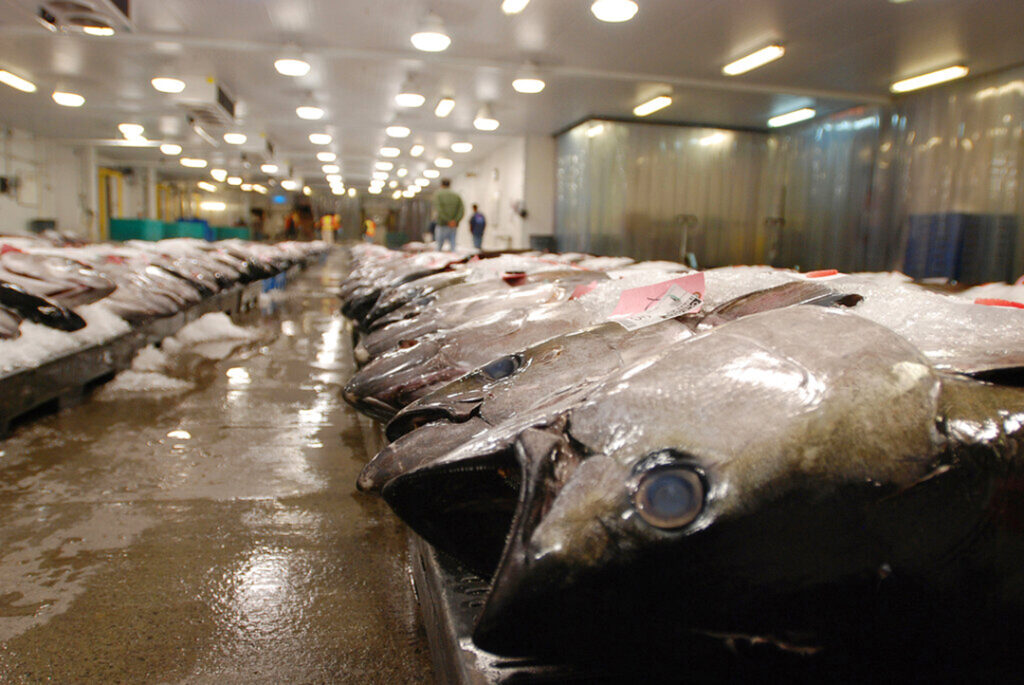FORUM Staff
The United States said it dealt a blow against forced labor and illegal fishing in the Pacific islands in August 2021 when it blocked a Fijian-flagged vessel from importing tuna into the U.S.
U.S. Customs and Border Protection issued an order to stop imports from Hangton No. 112, a longline fishing boat operated by a Chinese national, The Associated Press (AP) reported.
“Companies that exploit their workers have no place doing business in the United States,” U.S. Secretary of Homeland Security Alejandro Mayorkas said in a news release. “Products made from forced labor not only exploit workers, but hurt American businesses and expose consumers to unethical purchases.”
It’s the latest action targeting Indo-Pacific vessels crewed by migrant workers who are subjected to dire conditions. Just three months earlier, the U.S. blocked imports from all 30 vessels operated by a Chinese fishing fleet over its treatment of crews. The U.S. banned seafood from Dalian Ocean Fishing, which forced crews to work in slave-like conditions, leading to the deaths of several Indonesian fishermen in 2020, officials said.
Such inhumane conditions in distant-water fleets have been well-documented, but some operators have adjusted tactics to avoid discovery. The case of the Hangton No. 112 is an example of what experts call the use of “flags of convenience” (FOC) to conceal ownership.
In its October 2020 report “Off the Hook: How flags of convenience allow illegal fishing to go unpunished,” the United Kingdom-based charity Environmental Justice Foundation found that ship operators’ use of other countries’ flags “exacerbates the opacity of the fishing sector, hindering efforts to identify and sanction the ultimate beneficiaries of IUU [illegal, unreported and unregulated] fishing activities, providing them with an easy escape route.”
Although there is no universal definition of an FOC in fisheries, the International Transport Workers Federation defines the concept as when the beneficiary of the fishing resides in a country other than that of the flag state. (Pictured: Tuna is auctioned in Honolulu, Hawaii.)
The Chinese flag, for example, is sometimes absent from People’s Republic of China’s (PRC’s) fishing trawlers. The case of the African nation of Ghana illustrates how the PRC infiltrated what was supposed to be a domestically controlled industry.
Ghana prohibits foreign ownership in its trawl sector, but Chinese companies have operated through Ghanaian front companies to import their vessels into the fleet and obtain fishing licenses, the Environmental Justice Foundation report said. “On paper, interests are entirely Ghanaian, including the Board of Directors of the registered corporate owner. Yet the reality is that 90-95% of the Ghanaian trawl fleet is connected to Chinese interests.”
A recent investigation by the nonprofit China Dialogue found that 35 trawlers operating across Ghana, Guinea and Sierra Leone are owned by a Chinese state enterprise, Dalian Mengxin Ocean Fisheries. Seventeen of the vessels fly the Ghanaian flag.
This creates a potential enforcement loophole, as well as a competitive threat if the operators engage in slave labor. “Our oceans are under threat,” the Environmental Justice Foundation reported. “Over-fishing has driven many fish stocks to the brink, and some to total collapse.”
IMAGE CREDIT: THE ASSOCIATED PRESS

